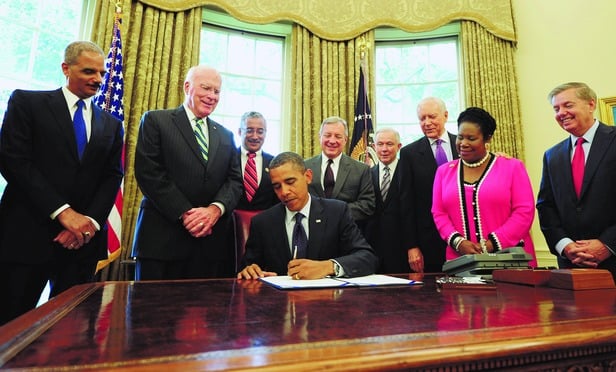After 20 years of off-and-on deliberations, Congress in 2010 finally passed the Fair Sentencing Act, which reduced the crack-to-powder cocaine disparity in sentencing from a ratio of 100-to-1 to 18-to-1. Congress did not clearly specify, however, which offenders should benefit from the reduced punishment — those previously sentenced, those whose sentences had yet to become final, or only those committing offenses after the act went into effect.
That question was litigated around the country and in 2012 the U.S. Supreme Court held in United States v. Dorsey that the 2010 Fair Sentencing Act’s reduction in prison time for many crack offenses should be applied to those whose sentences had yet to become final, but could not be applied to those who had plea bargained or been sentenced before the law’s enactment.
This content has been archived. It is available through our partners, LexisNexis® and Bloomberg Law.
To view this content, please continue to their sites.
Not a Lexis Subscriber?
Subscribe Now
Not a Bloomberg Law Subscriber?
Subscribe Now
LexisNexis® and Bloomberg Law are third party online distributors of the broad collection of current and archived versions of ALM's legal news publications. LexisNexis® and Bloomberg Law customers are able to access and use ALM's content, including content from the National Law Journal, The American Lawyer, Legaltech News, The New York Law Journal, and Corporate Counsel, as well as other sources of legal information.
For questions call 1-877-256-2472 or contact us at [email protected]





